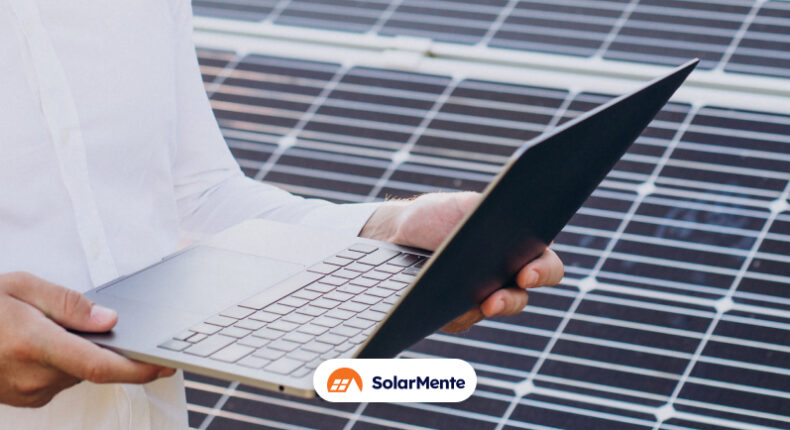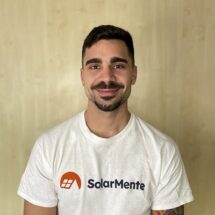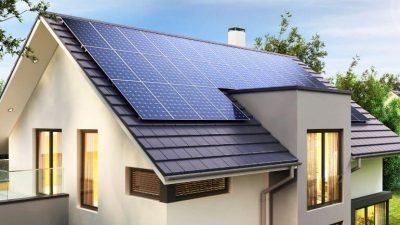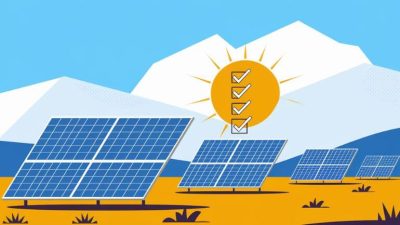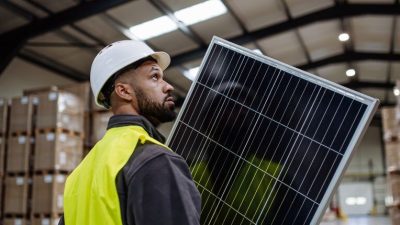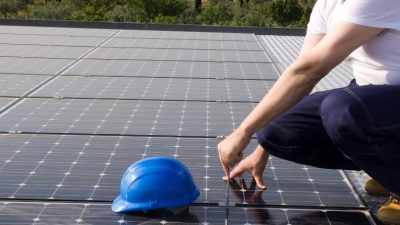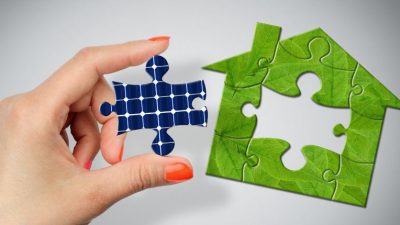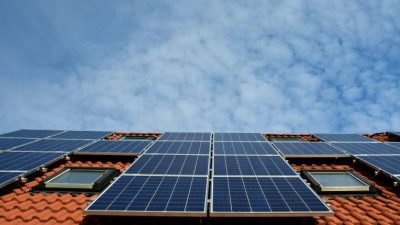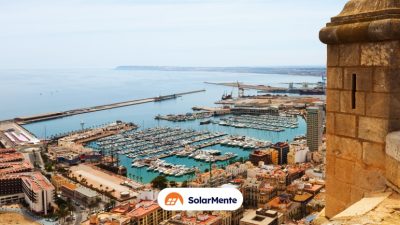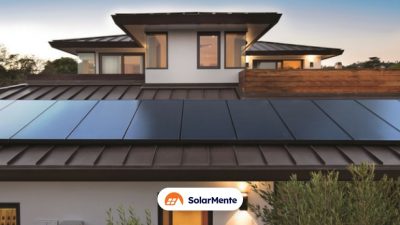If you want to enjoy self-consumption and start saving every month, it is necessary to meet a series of requirements to install solar panels on your home.
Technical aspects such as the state of the roof, orientation, inclination or shading are technical aspects to evaluate that will give us more than one clue.
In addition, it is essential to comply with the corresponding urban planning and electrical regulations.
Incorporating a photovoltaic system on your roof is not just a matter of wishing it, but the house must meet certain conditions that are beyond our reach.
This article will help you to clarify the main requirements for the installation of solar panels.
Technical aspects to consider
There is no point in explaining the legal terms to be fulfilled, if the home does not have the technical aspects to enjoy solar energy. And these are:
-
Roof condition
-
Shading
Let’s look at each of them in detail.
Roof condition
We start with the condition of the roof for one simple reason: it is the main requirement for installing your solar panels.
Let us explain why.
The modules are installed by means of a specific solar panel support to the structure of the house.
But be careful, we are not talking about the roof tiles.
However, the covering of the structure is an insulating medium that prevents water infiltration and must be in the correct condition.
Is it enough to have a resistant and large space?
Certainly not.
In addition, the surface must be free of toxic materials such as asbestos. These are dangerous when handled. Their use was banned in new constructions in Spain in 2002 and the European Union has the objective of eradicating them in all buildings by 2028.
In short, if you have a roof in poor condition, it is advisable to repair it before installing a photovoltaic system.
Therefore, make sure that there is no possibility of tiles breaking during installation to avoid risks to workers and the watertightness of the roof.
And that there is no risk of leaks or detachment causing early roof renovation.
Because you will have to dismantle the system and reassemble it. More expense for you.
Orientation and inclination
The orientation and inclination of the solar panels is another fundamental requirement.
So important that it will be a decisive factor that will tell you whether you can install a photovoltaic system or, on the contrary, you will have to opt for another source of renewable energy.
Because if there is a bad orientation, you will not produce enough energy through your solar panels to cover your energy needs and, therefore, we would be talking about an investment in vain.
Photovoltaic technology needs solar radiation to work, i.e. the more hours of sunlight it receives per year, the more it produces. It is as simple as that.
And what is the right orientation for Spain?
Well, it’s good.
As we are in the northern hemisphere, the more south-facing buildings are, the more solar radiation they will receive.
But what is the problem?
Unfortunately, not all homes have this privilege.
However, some homes do have other alternatives.
For example, facing east if your main consumption takes place in the early hours of the day. On the other hand, if you do it late in the day, the west will be a better option.
“What if I only have the possibility of orienting them to the north?
In this case, photovoltaics are not the right choice for you and you will need to consider other sustainable technologies.
Shades
Shadows are no friend of PV installations.
Trees or adjoining structures can be a drawback for the energy production of your home.
Important fact: it should not affect the selected area of the roof.
There are certain components of the system that help to ensure that the installation is not completely affected by occasional shading. However, you should bear in mind that they will reduce the performance.
In summary, in order for the installation to maximise the yield, the following technical requirements must be met:
-
The roof must not contain asbestos or asbestos.
-
The roof must not leak and must not have the possibility of detachment.
-
Not be affected by shading on a constant basis
-
It must not face north
>> Here you can check whether your house meets the requirements for the installation of solar panels.
solar panels.
Legal requirements for installing solar panels: town planning and electrical regulations
Once you have met the technical requirements, let’s look at the legal conditions.
These include
-
Urban planning
-
Electrical
Town planning permits
Photovoltaic self-consumption installations are regulated under the construction sector.
Therefore, a building permit must be applied for in order to proceed with the installation.
Are the same criteria used in all regions?
No. Each locality or autonomous community establishes different conditions, but in general, the following must be submitted:
-
Declaración responsable
-
Permiso de obra mayor
-
Permit for minor works
If they are not applied for, a breach of the law will occur. In this case, if the authorities discover it, they will apply the corresponding sanctions.
In addition, the building on which the modules are installed must be legalised, otherwise you will never obtain approval. In this regard, other relevant factors have to be taken into account when granting planning permission. These are:
-
Type of land: rural or urban
-
Area: historical, natural, etc.
In any case, we recommend that you contact your local council and make sure that your home meets the legal requirements for the installation of your panels.
Electrical regulation requirements
You must also comply with the requirements of the electrical regulations.
Any electrical installation in a building must be registered and legalised with the Ministry of Industry. And photovoltaic installations are also covered by these regulations as they are electrical generating systems.
That said, the electrical installation is legal if it is registered with the Ministry of Industry.
The electrical installation will become legal if it complies with the procedures established in the electrical regulations in terms of low voltage and self-consumption.
Also, the installation cannot be carried out by just anyone but must be registered and validated by an authorised installer. Make sure that the installer provides you with the correctly completed and registered Electrical Installation Certificate (CIE) once the process is completed.
Furthermore, in order to receive the surplus compensation, it is essential to legalise the installation.
In any case, the requirements for photovoltaic installations have been simplified in recent years, making it more favourable and speeding up the process for households to enjoy self-consumption and start saving as soon as possible.
In short, the requirements for installing solar panels are:
-
To have a roof in good condition with the right orientation and not to be constantly shadowed by shadows.
-
Comply with the necessary conditions and permits for the photovoltaic installation.
Ready to install your solar panels?
Complying with the necessary requirements to install your solar panels is essential.
But if you have any questions, just ask us. We know the procedures inside out and we want you to know all the information from minute one.
And to make sure you meet all the conditions:
>> Click here and get the complete study of your home.
Each home has specific characteristics.
If you want to make the most of your system to save more energy and reduce your electricity bill, then click on the link above and we will see your case.

